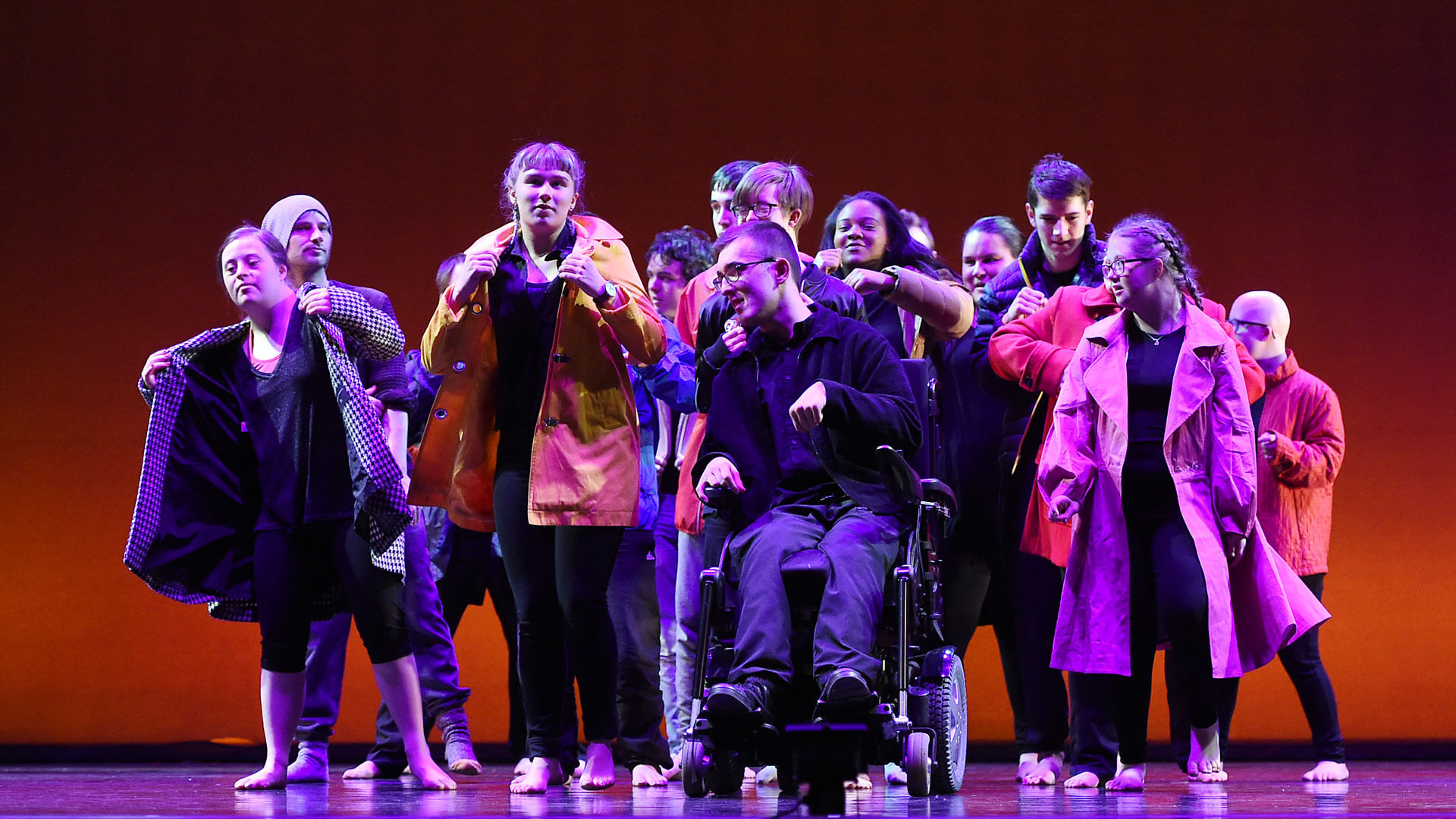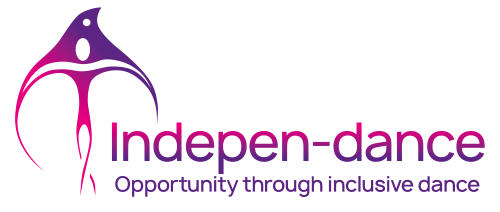Our Story
Indepen-dance was founded in 1996 by Karen Anderson on the principle of access, participation and inclusion. Karen was Dancer in Residence for Strathclyde Regional Council (as a job share with Jamie Armstrong) and worked on a project named “Disintegration”, bringing together young people with and without disabilities to dance.
The outcome was an overwhelming success and prompted Karen to set up a weekly dance class specifically aimed at people with learning disabilities at the then Strathclyde Arts Centre. Regular attendance from people across Glasgow established a core group of 12 performers.
In 2002 an Indepen-dance Board of Directors was formed with the mission:
To create opportunities for disabled and non-disabled people and carers to enjoy, express and fulfil their potential through dance.

Our Aims
• To provide a dance experience that will enhance and enrich the lives of people with and without disabilities.
• To create inclusive performance opportunities – and continue to provide for lifelong learning.
• To promote an appreciation and understanding of movement and dance and work with integrated groups.
• To improve and increase the provision of specialist dance teachers for people with disabilities within Glasgow, Scotland and Europe.
• To bring dance to a wider spectrum of people, through classes, workshops and performances.
• To demonstrate how dance can improve the quality of people’s lives, as regards health, self-awareness, self- confidence and creative expression.
• To develop a wider audience for dance and disability, and to build continuing awareness of the possibilities for people with learning disabilities to become involved in, and have access to, the arts, through performance and workshops.
• To work in collaboration with any individual or organisation operating in the same field and sharing the same values and aims.
Our Values
Integration
• To promote integration rather than segregation.
• To avoid discrimination on any grounds; to offer its facilities and services to as wide a range of people as possible; and to ensure that everyone’s views are fully represented.
Aspiration and Potential
• To place the primary focus on the well-being, development and aspirations of all people with whom it works.
• To promote social confidence and self-awareness, and to encourage the fulfilment of potential.
Individuality and Integrity
• To pay full regard to individuality, integrity, humanity, right to privacy, and wishes at any time.
Encouragement
• As far as possible, to encourage participation in decisions which affect participants.
• To encourage involvement in activities in which participants are engaged, within limits of safety and good practice.
Honesty and Balance
• In all its dealings, to be honest and truthful; to allow full access to information; and to ensure that its processes are transparent.
• Following the principles of the United Nations Convention, to encourage people to exercise their rights and to achieve a proper balance between their rights and responsibilities.
